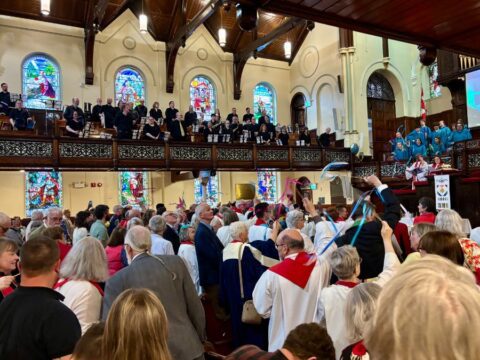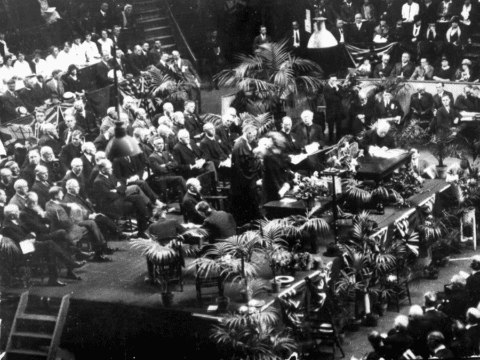The phrase “in essential agreement” has been part of the United Church’s history since church union negotiations between the Methodists, Congregationalists and Presbyterians began in the early 20th century. We have the Congregationalists to thank for it.
For those unfamiliar, the phrase appears in the United Church’s Basis of Union, the denomination’s “constitution.” It’s in Section 11.2, a passage about assessing candidates for ministry: “The Conference shall examine each Candidate on the Statement of Doctrine of the United Church and shall, before ordination, commissioning, or admission, be satisfied that such Candidate is in essential agreement therewith, and as a member of the Order of Ministry of the United Church accepts the statement as being in substance agreeable to the teaching of the Holy Scriptures.”
In the Manual, composed of both the Basis of Union and the church’s bylaws, it states that the Conference’s responsibility in examining candidates is to “satisfy itself” that the candidate is in essential agreement with the statement of doctrine and accepts that the statement is, in substance, agreeable to the teachings of scripture.
What is the purpose of such an examination? The answer flows from the reason we ordain, commission or recognize certain individuals as ministers. We set such individuals apart (not above!) to take particular responsibility for teaching and preaching the faith tradition and for providing pastoral care informed by the tradition. The Conference, through its examining committee, while also obviously concerned about a candidate’s general competency, needs to be satisfied that those whom it will authorize as United Church ministers are sufficiently within the faith tradition to be able to carry out those responsibilities. United Church ministers take on a role and responsibility different from the lay members of a congregation. For that reason, they are held to a different standard than lay members in relation to the United Church’s doctrine.
So why “essential agreement”? Why not “a literal adherence” to the denomination’s statement of doctrine?
The Congregationalists believed that a candidate for ministry (or anyone, for that matter) could be led by the Holy Spirit to new theological understandings or new insights about how to express things “eternal and divine.” Such new understandings or insights might be lost if the church required literal adherence to a statement of faith or specific answers to questions to which there was presumably only one “correct” response.
At the same time, the Congregationalists believed that the committee examining a candidate could determine whether, given any such new insights or understandings, a candidate’s theology fit sufficiently within the denomination’s understanding.
Being “in essential agreement” does not mean there is some percentage of the statement of doctrine with which a candidate must agree. Nor does it mean that candidates self-determine whether they are “in essential agreement.” Rather, it refers to the examining committee’s need to conclude that the candidate stands sufficiently within the denominational tradition to be able to teach, preach and otherwise exercise the functions of ministry in a way reflective of that tradition.
When, and only when, the examining committee can answer yes to that question can it make a positive recommendation to the Conference about a candidate.
This column first appeared in The Observer’s June 2017 issue with the title “Conundrums.”















